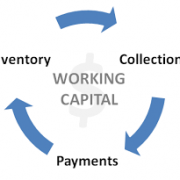Generate leads for your business
Generate leads for your business – the ultimate checklist
Got a fantastic business idea but struggling to generate leads? Or worse, you’ve worked hard to get leads, but lost them in the great GDPR purge of May 25th 2018? You’re not alone. Lead generation is a vital part of running a small business, but even seasoned self-employed professionals can find it difficult sometimes.
Having a broad set of methods for getting in front of the right people (and knowing how to hook them in) will improve the cashflow and public image of your business, and – just as importantly – your own morale.
In alphabetical order, here’s our ultimate checklist of ways your small business can generate leads and bring in more money.
Advertising
Search engines and social media channels offer straightforward ways of paying to get your business in front of people, as well as advanced options for those with an expert on hand. These are often referred to as ‘Pay Per Click’ or PPC, and (if done right) are an incredibly targeted and effective way to get visitors onto your website or online store.
Depending on what you’re selling, you also might want to consider traditional advertising. Local directories and newspapers are always looking to fill ad space, and might offer you a tasty discount for late space if you build a decent relationship with their sales reps.
Ask your friends for help
If you’re seriously confident about your idea, there’s no need to be coy. Phone, email and text your family and close mates explaining you have this exciting new business venture, and that you’d really appreciate if they could help you out.
Even if they personally have no interest whatsoever, maybe they can tell their friends on social media, or might be able to hook you up with a friend who would love whatever it is you’re selling.
Important note though, don’t confuse this with doing a big generic mailout of all your contacts, otherwise you may fall foul of the new rules regarding recipients needing to opt into promotional material.
Blog
Creating interesting and informative content will, if promoted properly, keep potential leads coming back and increase their awareness of your company. Showing that you know what you’re talking about will improve your credibility, and documenting your own thoughts and experiences can put a more relatable, human element to the company.
Be sure to include a newsletter signup form on your blog to ensure anyone who wants to stay in touch has an easy way to subscribe to your content.
Business cards
If you want to make sure you’re making a lasting impression when you meet a potential client or customer, get some high-quality business cards printed. The recipient is more likely to feel bad about throwing it away, and will probably end up keeping it in their coat pocket for about eight months before deciding what to do with it.
On the opposite side, asking everyone you meet for a business card might save you a bit of time, rather than awkwardly asking them how to spell their name three times in a row while adding them on LinkedIn.
Calls to action
Although this isn’t a platform in itself, calls to action (CTAs) are such an important lead generation factor that they deserve their own section.
Good examples of clear CTAs might be ‘Sign up here’, ‘Tell me more’ or ‘Buy Now’.
According to Ellie Mirman, VP of Marketing at Internet company Toast, emails with a single CTA increased clicks by 371% and sales by 1617%. It might seem like it goes without saying, but stats consistently show that a little bit of encouragement goes a long, long way.
Community involvement (online and in person)
Getting out and about amongst your target audience via networking events, meetups and stalls will keep your face and brand in the public eye.
In the modern age, this method can be supplemented (and even improved) by doing the same thing online. Sign up to sites like Reddit, Quora and community forums and be the knight in shining armour to people asking questions you’re qualified to answer. It’s more polite than interrupting people’s conversations in the pub, anyway.
Competitions
Everybody wants to get something for free, right?
If you’ve got a great prize that’s really going to tantalise people, they’ll flock to it in droves. Running a ‘like or share to win’ style campaign on social media can put your business in front of hordes of potential leads.
Keep in mind they’re probably just interested in the prize rather than your company’s story – it’s up to you to build something more meaningful upon their short-term engagement.
Flyering
It’s considered by many to be a bit of a lost art, but getting promotional materials printed and heading out to places your core audience hang out can still be a great way to generate leads. You also benefit from the personal touch that digital promotion lacks.
Be warned though, other businesses can get a bit shirty if you’re trying to piggyback off their audience – so be careful not to burn any bridges or drop flyers at someone else’s place of work without permission.
Free samples / trial runs
As with competitions, giving people something for free helps you stand out from the pack. Get them used to enjoying your service, and introduce the fees later on. You’ll inevitably get some customers dropping off, but if you’re doing a great job, people will find a way to work you into their budgets – especially if you’re sending them regular newsletters by that point.
Journalist requests
Websites like HARO (Help a Reporter Out) and Profnet connect journalists with expert professional sources, like yourself. Of course, these tools aren’t much of a substitute for a tailored PR agency, but a bit of extra coverage in a specialist publication might help you generate just the right sort of leads you’re after.
Newsletter
You’ll have already partaken in some lead generation if you have a collection of email addresses to send a newsletter out to, but you can encourage the recipients to share the news with their friends using carefully tailored CTAs.
As we’ve mentioned, all correspondence must now be in line with the General Data Protection Regulation introduced in May 2018 – it’s vital that you have explicit consent to contact every one of your recipients.
Partner with another company
If there’s another business out there you have a feeling your target audience might be interested in, the feeling could be mutual. If you suspect this is the case, make contact and see what sort of relationship you can foster. A rising tide lifts all boats, after all.
The possibilities are endless, you might end up going halves on some promo material, sharing advice, or even eventually merging your businesses.
Publicity stunts
In 1993, Dave Hargrave came first in a “World’s Smelliest Socks” contest, and won complimentary trainers for three years. Footwear company British Knights sponsored the event to promote a new canvas shoe which was created to prevent foot odour.
Depending on what industry you’re in, a good old-fashioned publicity stunt can get you into news publications, send you soaring to online viral fame, and generate leads without paying a penny.
Social media
Social media management can be daunting if you’ve not been using it much previously, but once you’ve seen the power they have to generate leads, you’ll be hungry to become a real guru of the subject.
Sponsor a local event
The more relevant, the better. The organisers will have similar cashflow concerns as you, and will appreciate a bit of help getting it up and running. Remember, if your name is on a big banner at the event, high attendance could benefit your business almost as much as theirs.
Videos
YouTube is the second biggest search engine in the world behind Google. Think about what you can do to build a YouTube presence and how you can then use this to generate leads and subscriptions.
Other video tools, such as Wistia, allow you to harness email addresses in order for the viewer to watch, but make sure it’s some seriously beneficial or desirable content, otherwise the viewer might not be bothered.
Webinars / podcasts
A great way to showcase your knowledge and expertise is simply by talking to people for a substantial amount of time. Perhaps you can speak at a local conference, or host a seminar at a local function room. Recording and broadcasting interesting discussions and advice online can bring in subscribers, and mean that you have a base of people who are the first to know when you have a tempting offer or a new product available.
Website / SEO
To their own detriment, many small businesses merely opt for a Facebook page or listing on Google instead of their own website, and thus lack the authenticity, gravitas and simplicity that is synonymous with a website.
It’s also important to make sure you’re doing your website justice by ranking above your competitors on search engines.
White papers
Got some unique insight into your industry? Slapping it into a blog is fine, but if it’s really valuable stuff and you’re keen to generate leads, you might consider creating a sleek looking PDF version and asking for the reader’s email address before they can access it.
Keep the sales messaging to a minimum – this is all about positioning yourself as a thought leader. And make sure you’re promoting it heavily through all the other listed methods, otherwise nobody will know it’s there and you’ll end up like a tree falling in the woods.
Of course, you’ll need to make sure the data you gather (and what you do with it) is in line with GDPR.
Word of mouth
Ask your best customers to talk you up to their friends, and give them a little extra service or special thanks for their good deed. Referral or affiliate schemes are excellent ways to build upon this strategy, and positive feedback on relevant review websites can often make or break a customer’s decision to engage with your business.
Not all of these methods to generate leads might be right for you, but hopefully a few have given you some ideas of how to get those sweet, sweet leads coming in.









